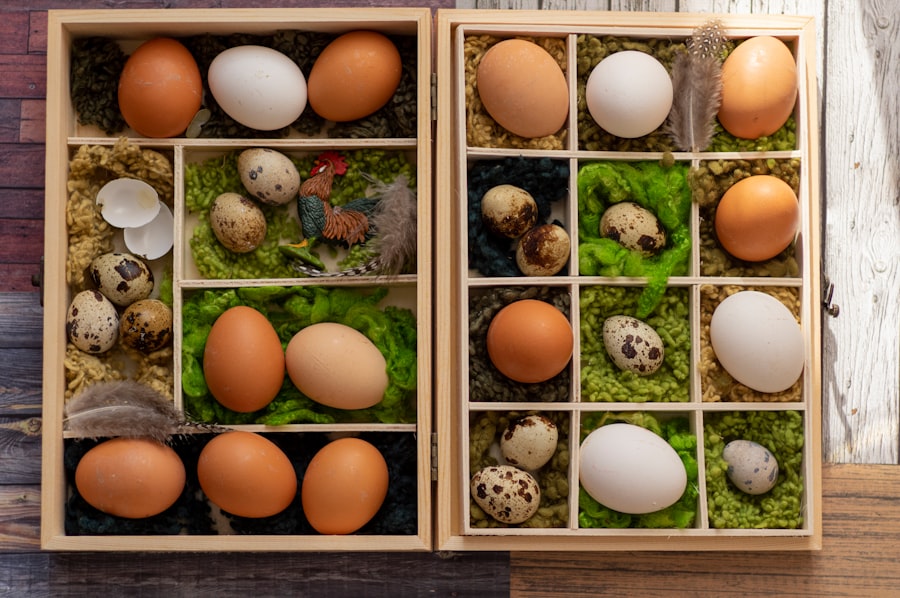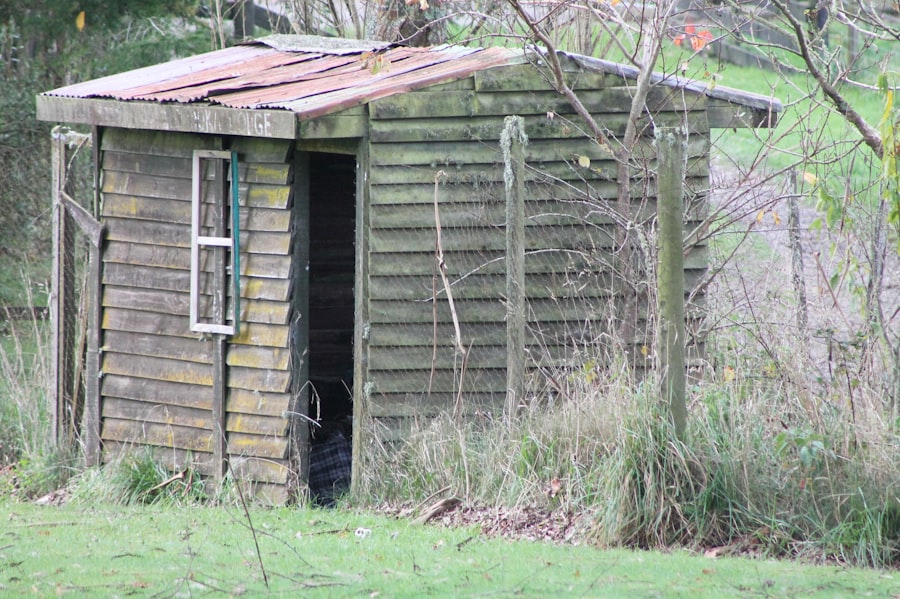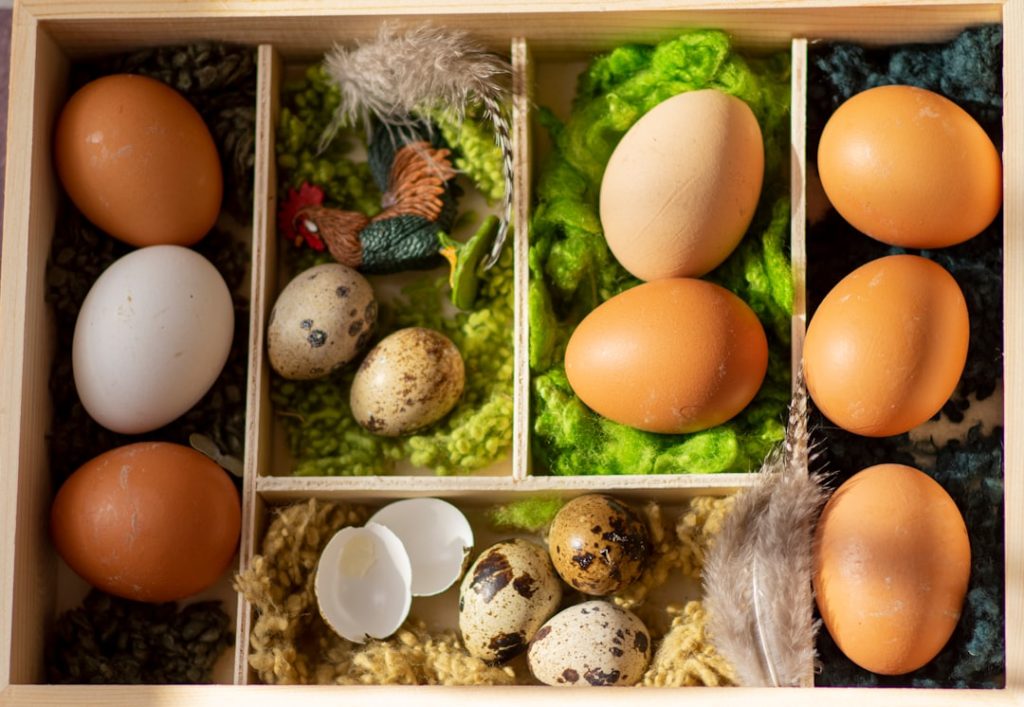Keeping chickens indoors is an important aspect of poultry management, particularly in regions with harsh weather conditions. Indoor housing offers protection from predators, extreme temperatures, and environmental hazards. It enables better control of the birds’ environment, including lighting, temperature, and ventilation.
Indoor housing also helps prevent disease and parasite spread, and reduces the risk of injuries and mortality. Indoor housing contributes to the overall well-being of chickens by providing a safe and secure environment for resting, eating, and egg-laying without external stressors. It facilitates easier monitoring of the birds’ health and behavior, allowing for prompt detection and addressing of any issues.
This approach can lead to improved flock management and welfare. While indoor housing offers numerous benefits, it is crucial to ensure that chickens have sufficient space, enrichment, and access to natural light to maintain their physical and psychological health. Proper management practices and attention to the birds’ needs are essential for successful indoor chicken keeping.
Table of Contents
- 1 Factors to Consider When Determining How Long to Keep Chickens Indoors
- 2 Health and Safety Considerations for Indoor Chicken Keeping
- 3 Tips for Keeping Chickens Happy and Healthy Indoors
- 4 Transitioning Chickens from Indoors to Outdoors
- 5 Common Mistakes to Avoid When Keeping Chickens Indoors
- 6 Resources for Further Information on Indoor Chicken Keeping
- 7 FAQs
- 7.1 What is the recommended age to keep chickens indoors?
- 7.2 How long should chickens be kept indoors during the winter?
- 7.3 What are the reasons for keeping chickens indoors?
- 7.4 What are the potential drawbacks of keeping chickens indoors for an extended period of time?
- 7.5 How can I ensure the well-being of chickens kept indoors?
Key Takeaways
- Keeping chickens indoors is important for their safety and health, especially in areas with extreme weather or predators.
- Factors to consider when determining how long to keep chickens indoors include weather conditions, predator threats, and the size of the indoor space.
- Health and safety considerations for indoor chicken keeping include proper ventilation, cleanliness, and disease prevention.
- Tips for keeping chickens happy and healthy indoors include providing ample space, natural light, and enrichment activities.
- When transitioning chickens from indoors to outdoors, it’s important to gradually introduce them to the outdoor environment and monitor their behavior closely.
- Common mistakes to avoid when keeping chickens indoors include overcrowding, poor ventilation, and inadequate cleaning practices.
- Resources for further information on indoor chicken keeping can be found through local agricultural extension offices, online forums, and books on poultry care.
Factors to Consider When Determining How Long to Keep Chickens Indoors
Climate and Weather Conditions
The local climate and weather conditions play a significant role in determining when it’s safe to let the birds venture outdoors. Extreme temperatures, heavy rainfall, or snow can pose risks to the birds’ health and safety, making it necessary to keep them indoors until conditions improve.
Age and Stage of Development
The age and stage of development of the birds are also crucial factors to consider. Young chicks may need to be kept indoors for a longer period to ensure their safety and proper growth. Similarly, brooding hens or birds recovering from illness or injury may benefit from extended indoor housing to facilitate their recovery.
Predator Risk and Overall Safety
The presence of predators in the area should also be taken into account when deciding how long to keep chickens indoors. If there is a high risk of predation, it may be necessary to keep the birds indoors until appropriate measures can be taken to secure their outdoor environment. Overall, the decision of how long to keep chickens indoors should be based on a careful assessment of the local conditions, the birds’ specific needs, and potential risks to their health and safety.
Health and Safety Considerations for Indoor Chicken Keeping

When keeping chickens indoors, it’s essential to prioritize their health and safety. Proper ventilation is crucial to ensure good air quality and prevent respiratory issues. Ample space is also important to prevent overcrowding and reduce the risk of aggression and stress-related behaviors.
Additionally, providing appropriate lighting is essential for maintaining the birds’ natural circadian rhythms and promoting healthy egg production. Furthermore, maintaining cleanliness and hygiene in the indoor housing is vital for preventing the spread of diseases and parasites. Regular cleaning of the coop, nesting boxes, and feeding areas is necessary to minimize health risks for the birds.
Proper waste management and disposal are also important to prevent the buildup of harmful bacteria and odors. Another important consideration for indoor chicken keeping is biosecurity. Implementing strict biosecurity measures can help prevent the introduction and spread of diseases within the flock.
This includes limiting access to the birds, disinfecting equipment and footwear, and monitoring visitors to the premises. Overall, prioritizing health and safety considerations is essential for successful indoor chicken keeping and ensuring the well-being of the birds.
Tips for Keeping Chickens Happy and Healthy Indoors
Keeping chickens happy and healthy indoors requires attention to their physical and psychological needs. Providing enrichment activities such as perches, dust baths, and toys can help prevent boredom and reduce stress-related behaviors. Additionally, offering a varied diet with access to fresh water and appropriate nutrition is essential for maintaining the birds’ overall health.
Furthermore, social interactions are important for chickens’ well-being. Providing opportunities for socialization within the flock can help prevent aggression and promote positive behaviors. Additionally, spending time with the birds and providing gentle handling can help build trust and reduce fearfulness.
Another important aspect of keeping chickens happy indoors is providing access to natural light. Exposure to natural light is essential for maintaining the birds’ circadian rhythms and promoting healthy egg production. If natural light is limited, supplemental lighting can be used to ensure adequate illumination for the birds.
Overall, prioritizing the birds’ physical and psychological well-being is crucial for keeping chickens happy and healthy indoors.
Transitioning Chickens from Indoors to Outdoors
When transitioning chickens from indoor housing to outdoor environments, it’s important to do so gradually to minimize stress and reduce the risk of injury or illness. Providing access to a secure outdoor run can allow the birds to acclimate to their new surroundings while remaining protected from predators. Additionally, gradually increasing the birds’ outdoor time can help them adjust to changes in temperature, sunlight exposure, and natural stimuli.
Monitoring their behavior and health during this transition period is important to ensure that they are adapting well to their new environment. Furthermore, providing access to natural foraging opportunities can help stimulate the birds’ natural behaviors and provide mental enrichment. Offering a varied outdoor environment with access to grass, insects, and other natural elements can contribute to the birds’ overall well-being.
Overall, transitioning chickens from indoors to outdoors should be done with careful consideration of their needs and gradual acclimation to their new environment.
Common Mistakes to Avoid When Keeping Chickens Indoors

Overcrowding and Inadequate Space
One of the most common mistakes is overcrowding, which can lead to stress-related behaviors, aggression, and increased risk of disease transmission. Providing adequate space for the birds is essential for preventing these issues.
Poor Ventilation and Cleanliness
Another common mistake is inadequate ventilation, which can lead to poor air quality and respiratory issues for the birds. Proper ventilation is crucial for maintaining good air circulation and preventing the buildup of harmful gases and odors in the indoor housing. Additionally, neglecting cleanliness and hygiene in the coop can lead to health risks for the birds. Regular cleaning and waste management are essential for preventing the spread of diseases and parasites within the flock.
Enrichment and Mental Stimulation
Failing to provide appropriate enrichment activities can lead to boredom and stress-related behaviors in the birds. Providing perches, dust baths, toys, and other forms of enrichment is important for promoting positive behaviors and mental stimulation.
Successful Indoor Chicken Keeping
Overall, avoiding these common mistakes is essential for successful indoor chicken keeping and ensuring the well-being of the birds. By providing adequate space, proper ventilation, cleanliness, and enrichment, you can create a healthy and happy environment for your indoor chickens.
Resources for Further Information on Indoor Chicken Keeping
For those interested in learning more about indoor chicken keeping, there are several resources available that provide valuable information and guidance on best practices. Books such as “The Small-Scale Poultry Flock” by Harvey Ussery and “Storey’s Guide to Raising Chickens” by Gail Damerow offer comprehensive insights into poultry management, including indoor housing considerations. Additionally, online resources such as university extension websites, poultry organizations, and forums can provide valuable information on indoor chicken keeping practices.
These resources often offer articles, guides, videos, and forums where poultry enthusiasts can share experiences and seek advice from experienced chicken keepers. Furthermore, attending workshops or seminars on poultry management can provide hands-on learning opportunities and access to expert advice on indoor chicken keeping practices. Local agricultural extension offices or poultry organizations may offer events or workshops focused on poultry management that can be valuable resources for those interested in learning more about indoor chicken keeping.
Overall, accessing these resources can provide valuable insights into best practices for indoor chicken keeping and contribute to successful poultry management.
If you’re considering keeping chickens indoors, you may also be interested in learning about the best kind of coop for chickens. Poultry Wizard has a helpful article on what kind of coop is best for chickens that provides valuable information on creating a safe and comfortable living space for your feathered friends.
FAQs
What is the recommended age to keep chickens indoors?
Chickens can be kept indoors for the first 6-8 weeks of their life, until they are fully feathered and able to regulate their own body temperature.
How long should chickens be kept indoors during the winter?
Chickens can be kept indoors during the winter months when temperatures are consistently below freezing. They should be provided with adequate space, ventilation, and access to natural light.
What are the reasons for keeping chickens indoors?
Chickens may be kept indoors for various reasons, including protection from predators, extreme weather conditions, or to provide a controlled environment for young or sick birds.
What are the potential drawbacks of keeping chickens indoors for an extended period of time?
Keeping chickens indoors for an extended period of time can lead to issues such as lack of exercise, boredom, and potential health problems. It is important to provide indoor chickens with ample space, enrichment, and proper care to mitigate these issues.
How can I ensure the well-being of chickens kept indoors?
To ensure the well-being of chickens kept indoors, it is important to provide them with a clean and spacious living environment, access to natural light, proper ventilation, a balanced diet, and opportunities for exercise and mental stimulation. Regular health checks and monitoring for signs of stress or illness are also crucial.
Meet Walter, the feathered-friend fanatic of Florida! Nestled in the sunshine state, Walter struts through life with his feathered companions, clucking his way to happiness. With a coop that’s fancier than a five-star hotel, he’s the Don Juan of the chicken world. When he’s not teaching his hens to do the cha-cha, you’ll find him in a heated debate with his prized rooster, Sir Clucks-a-Lot. Walter’s poultry passion is no yolk; he’s the sunny-side-up guy you never knew you needed in your flock of friends!







